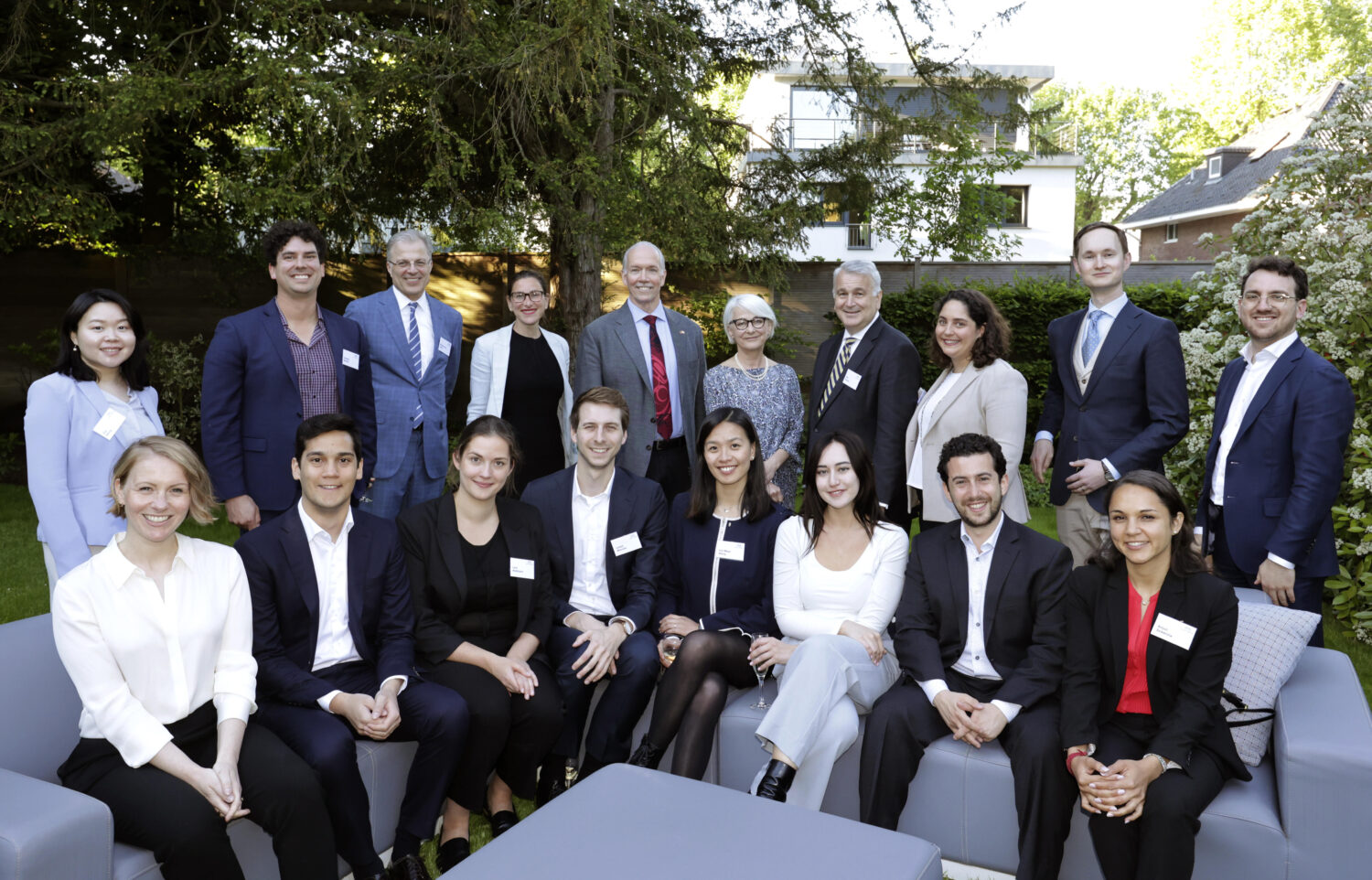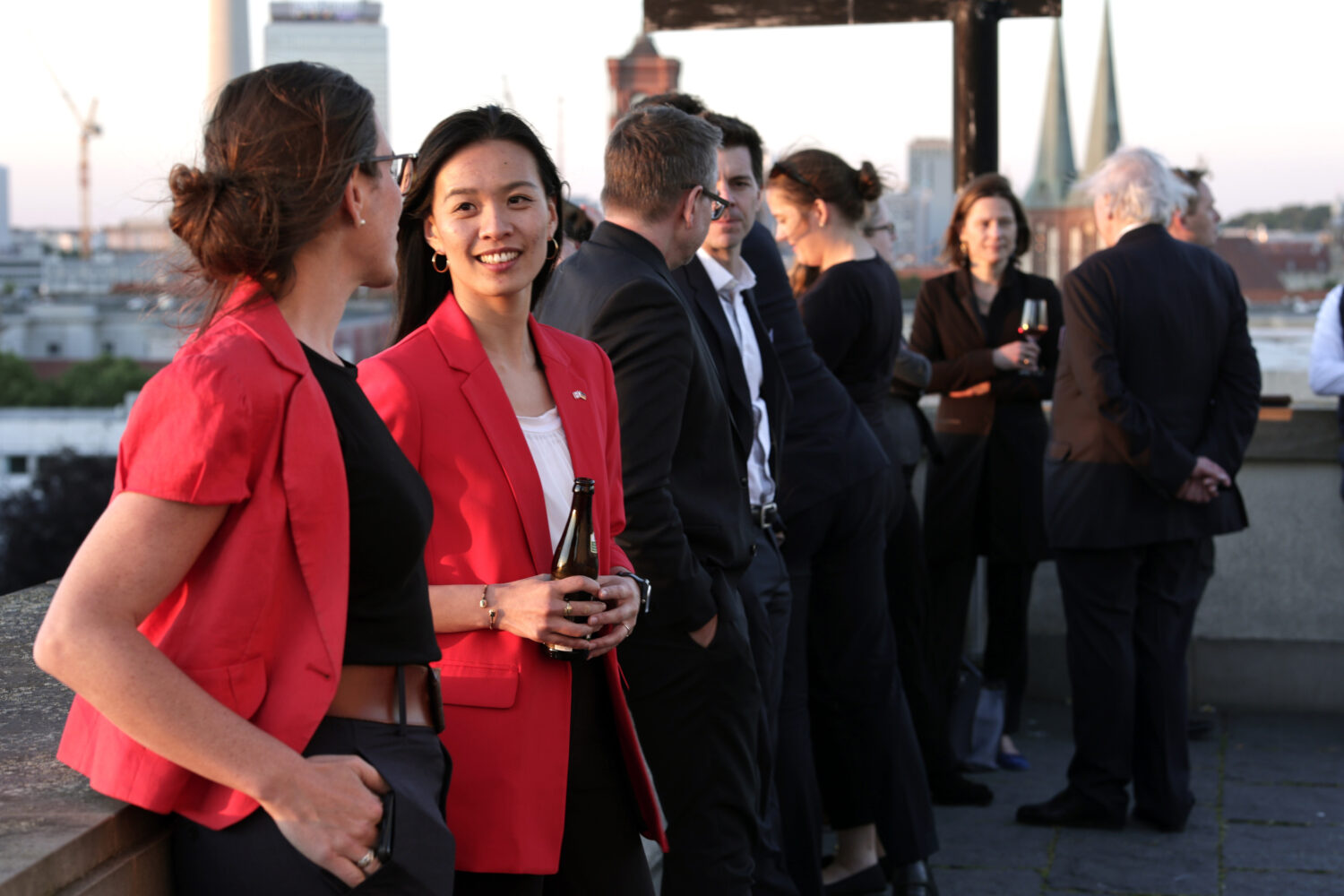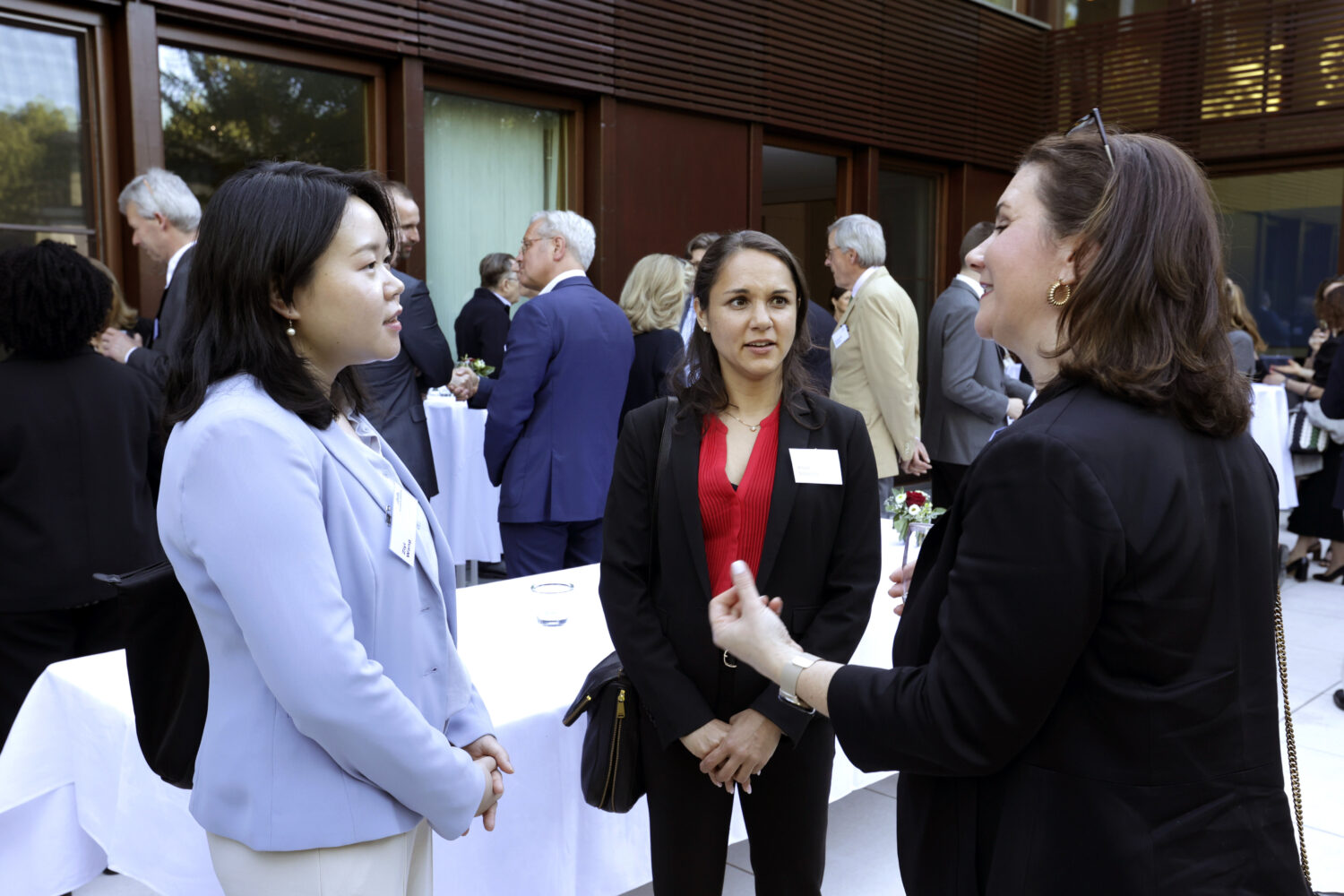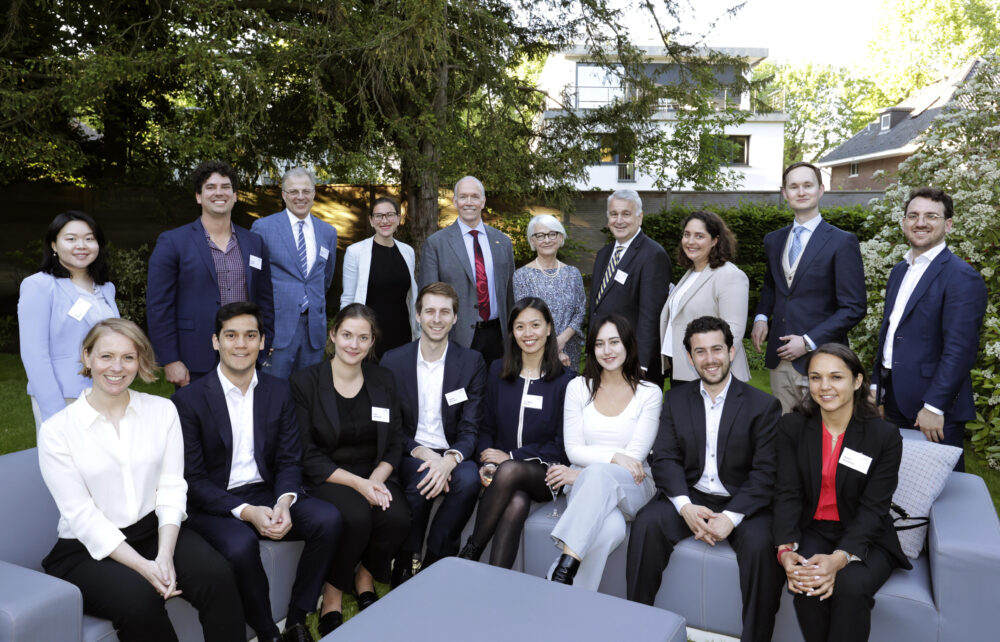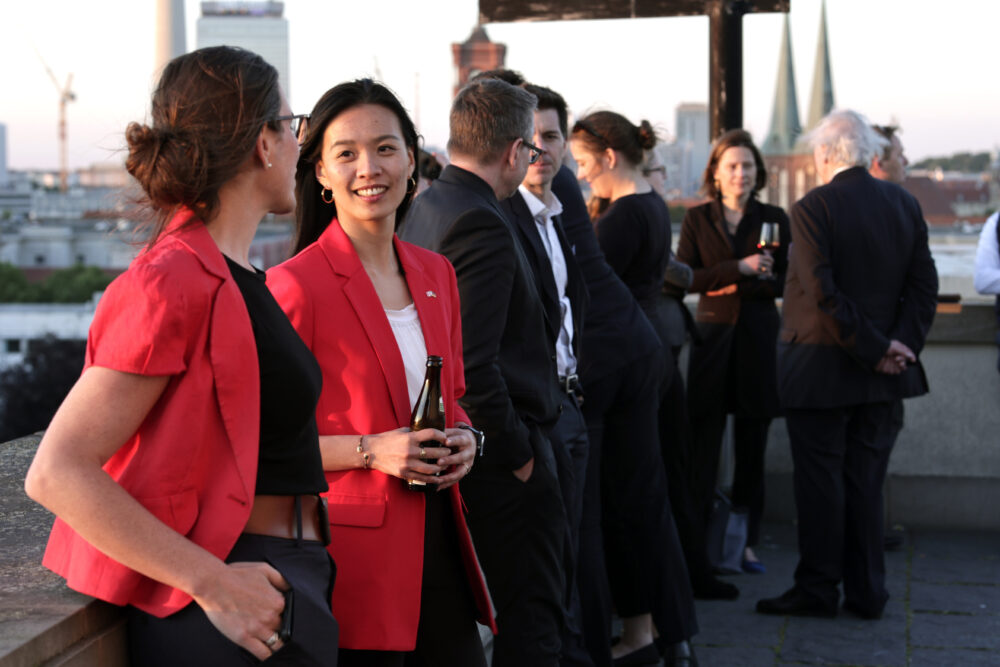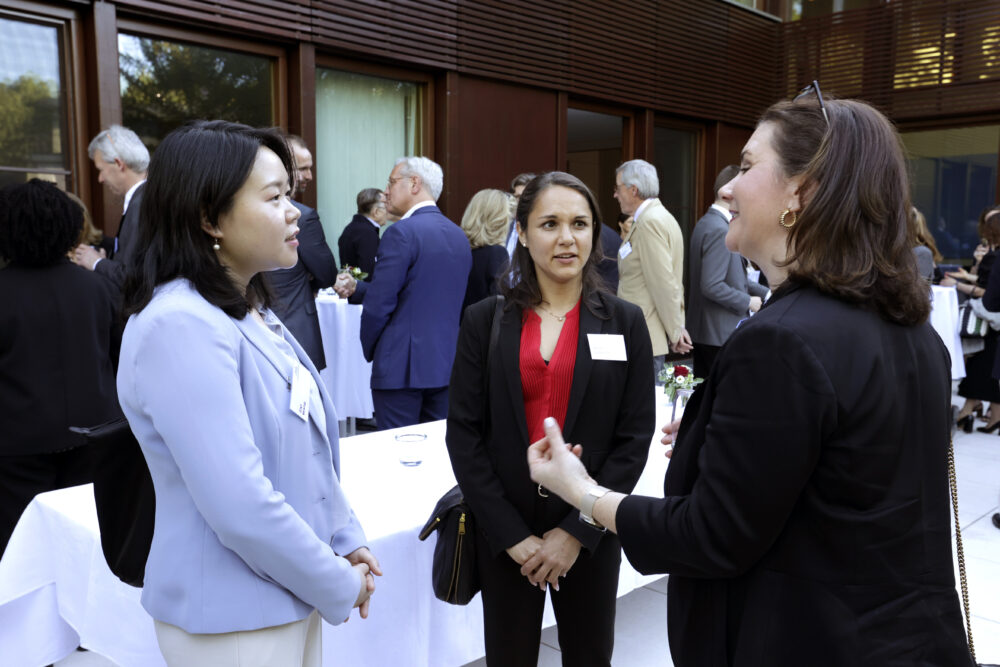2024 Young Atlantiks Program Report
Berlin, Germany
May 11- 15, 2024
The Young Atlantiks Program, organized with the support of the Embassy of Canada to Germany, the Embassy of Germany to Canada, Atlantik-Brücke Canada and Atlantik-Brücke e.V., seeks to cultivate the next generation of young leaders to foster the German-Canadian transatlantic partnership. From May 11-15, 2024, ten young Canadian and German professionals, with diverse backgrounds and expertise, met to discuss current and future transatlantic challenges and to attend the 37th German-Canadian Conference in Berlin. The program’s goals include deepening the understanding of Canadian and German politics and culture, fostering connections between the two countries, and enhancing future leaders‘ involvement in transatlantic networks.
During the five-day program, the Young Atlantiks engaged in dialogues with a variety of transatlantic actors to discuss key issues on the international policy agenda, including climate change, defence and security cooperation, as well as digitalization and artificial intelligence. These sessions were complemented by a well-curated cultural and historical program, which took the Young Atlantiks to museums in addition to civil society and art initiatives. The participants took the opportunity to learn not only from speakers but also from one another on a peer-to-peer level, sharing different perspectives and experiences from various fields. All discussions were held under the Chatham House Rules. Outlined below, are three key takeaways from the Young Atlantiks’ discussions in Berlin: the uncertainty of geopolitical changes in the upcoming super-election year, the benefits of generational collaboration across transatlantic allies, and the need to implement concrete joint projects to enhance the Canada-Germany bilateral relationship.
Super-election Year: Uncertainty in a Geopolitical Polycrisis
A shared underlying theme in most discussions during the Young Atlantiks Program was the looming uncertainty of geopolitical change with upcoming elections in many countries, including the European Union (“EU”), Mexico, India, and, most notably, the United States (“US”) this fall. The US policy under a possible second Trump administration would greatly impact many policy areas discussed, including environmental, foreign, and trade policy. The consequences for the transatlantic relationship of new and re-emerging aggression from China and Russia, respectively, were also discussed. Finally, while climate change was a set agenda item for multiple sessions, it frequently featured in many others as well. As one of the conference speakers captured, “climate change is an ‘everything’ issue,” with intersectional impacts across all sectors. While Germany and Canada share generally similar approaches to climate change adaptation and mitigation strategies, additional emphasis was placed on the countries acting together in supporting the world’s transition to net-zero, including Global South actors. The group learned about possible impacts of the EU election on the European Green Deal as well as ongoing debates in the Canadian context, which has a resource-based economy. Many speakers shared how domestic policy areas, such as inflation, employment, and immigration, link to the current geopolitical situation, highlighting the complexities foreign policy needs to consider.
Fostering Collaboration Across Generations, the Atlantic and Beyond
When discussing the geopolitical challenges during the super-election year, most speakers stressed the importance of fostering collaborations between Germany and Canada across generations. While of particular importance in this context, building these relationships would serve both countries well regardless of election outcomes. Many guests during the Young Atlantiks program showed their appreciation for bringing together the next generation of transatlantic leaders and were seeking the Young Atlantiks’ input as much as the Young Atlantiks sought theirs. Speakers collectively stressed a focus on being more agile, increasing collaboration, engaging other young people, and emphasizing what unites Germany, Canada, and other partners, rather than what divides them. To strengthen collaborations and partnerships, it is crucial to engage with the different cultures and populations of Germany and Canada, as well as to seek and maintain conversations with those who are not necessarily like-minded to find common ground and build trust. In a constantly changing world, the forces of government, industry, and civil society need to pull together in order to secure peace and prosperity for and with future generations. This can only be achieved through cooperation and collaboration.
Moving Beyond Rhetoric: Building a Concrete and Reliable Transatlantic Partnership
The Young Atlantiks Program highlighted that bilateral relations are currently at an all-time high, reflecting a strong and vibrant partnership. It is, however, imperative that this positive diplomatic climate is translated into concrete actions and initiatives. Instead of simply acknowledging the success of current bilateral relations, decisive steps need to be taken to initiate specific projects, advance particular issues, and ensure these relationships can weather the coming potential geopolitical instability. A prominent example is the trade agreement with Canada, which Germany has ratified, but other EU member states, such as France, have not yet. This situation highlights a critical challenge: if universal ratification of a trade agreement with a close and like-minded partner like Canada cannot be achieved, with whom can the EU successfully negotiate such agreements? While the United States will naturally remain Canada’s most important partner, the EU and Germany must elevate their commitments and take the Canadian relationship more seriously. Given the growing notion of isolationism in the US political debate, this would benefit both Canada and Germany. Strengthening the transatlantic relationship involves not only economic and trade matters but also addressing broader geopolitical, security, and environmental challenges together. By moving beyond rhetoric and focusing on tangible outcomes, the Canada-Germany relationship can be strengthened, contributing to a more resilient and prosperous future for both countries and partners.

